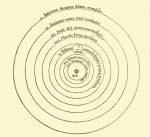Although there is some debate among scholars, September 12th is the generally accepted anniversary date of the Battle of Marathon in 490 B.C., one of the most consequential battles in the history of the Western world. It’s a name and an event every homeschool student should know, so why not remember it with your students this week and perhaps engage in a little “what-if” speculation.
![[Battle of Marathon]](https://riverhouses.org/wp-content/uploads/2024/09/battle-of-marathon-stamp-2010-300x214.jpg)

The Battle of Marathon took place in 490 B.C., and the two centuries that followed are what we now think of as the Golden Age of Greek literature, art, and science. If the Persians had won at Marathon and Athens had fallen, all of mainland Greece would almost certainly have fallen in turn under “Eastern despotism.” And as a result, all the foundation-stones of the Western world that came after — Socrates and Plato, Sophocles and all the Greek playwrights, the art and architecture of Classical Greece, the science and philosophy of Aristotle and his successors — all might never have appeared. (“What-if” history is always speculation, but it’s good for your students’ imaginations even so.)
The American essayist Guy Davenport (1927–2005) wrote a wonderful modern poem about the importance of remembering Marathon, using fellow-poet and former teacher Marianne Moore (1887–1972) as his example. Moore, who had lived for many years in Brooklyn, New York, made a pilgrimage to Marathon in her old age to pay tribute to the Greek army.
At Marathon
Marianne Moore saluted the battlefield.
Her frail hand at the brim of her hat
round as a platter, she stood at attention
in her best Brooklyn Navy Yard manner,
or as years before she and Jim Thorpe
raised the school flag at Carlisle.
Here in long scarlet cloaks the ranks
advanced with ashlared shields, singing
to the thrashed drums and squealing fife
the pitiless hymn of Apollo the Wolf,
spears forward, horsetails streaming
from the masked helmets with unearthly eyes.
The swordline next and the javelineers,
More red cloaks, Ares wild in their blades.
The javelins whistled up like partridges
flushed in a brake and fell like sleet.
The Persians bored in, an auger of hornets.
The Greeks flowed around their thrust
as fire eats a stick. Wise to the ruse,
the Persians pulled back to the sea
and made hard in their ships for Athens,
which, the Greek army there on the plain,
lay naked to their will, tomorrow’s victory.
But the Greeks were there on the morrow
to cut them back. They had run all the way
from Marathon, twenty miles, in bronze.
Two thousand, four hundred and fifty-five
years ago. There are things one must not
leave undone, such as coming from Brooklyn
in one’s old age to salute the army
at Marathon. What are years?
Perhaps you and your students, like Marianne Moore, will visit the Plain of Marathon someday to give a salute of your own. The Greek soldiers are still there. Although it was generally the custom in ancient Greece to return war casualties to their home city for burial, the victory at Marathon was deemed so important that in Homeric fashion, the Athenians and Plataeans both raised great burial mounds and interred their fallen comrades on the field where they fell, and there they remain today.
What are years?
❡ Come, here’s the map: Be sure to track down the location of Marathon in your recommended world atlas. You’ll find it on plate 72, marked by the standard ⚔️ symbol used on most maps for historic battle sites. (Have your students discovered all the information that is packed into map symbols?) Your recommended history encyclopedia also has a well-illustrated spread on the conflicts between Greece and the Persian Empire on pages 92–93. 🌍
❡ Comparative literature: If you have high schoolers in your home academy, one of the best ways to get them to think critically about literature is to have them compare and contrast different works on similar themes. At the age of fourteen (!), Elizabeth Barrett Browning wrote a very long narrative poem about the Battle of Marathon, completely different in style from Davenport’s “Modernist” poem above. Why not have your students read Davenport and then read a bit of Browning (both out loud), and then have a conversation about the similarities and differences between them. 🔍
❡ Here, said the year: This is one of our regular posts about Homeschool Holidays & History. Subscribe to our free River Houses newsletter to get more great homeschool history lessons delivered right to your mailbox all through the year. 📫
❡ Homeschool calendars: We have a whole collection of free, printable, educational homeschool calendars and planners available on our main River Houses calendar page. They will help you create a light and easy structure for your homeschool year. Give them a try today! 🗓
❡ Support our work: If you enjoy our educational materials, please support us by starting your regular Amazon shopping from our very own homeschool teaching supplies page. When you click through from our page, any purchase you make earns us a small commission at no extra cost to you. Thank you for helping us to keep going and growing! 🛒
❡ Join us! The aim of the River Houses project is to create a network of friendly local homeschool support groups — local chapters that we call “Houses.” Our first at-large chapter, Headwaters House, is now forming and is open to homeschoolers everywhere. Find out how to become one of our founding members on the Headwaters House membership page. 🏡




